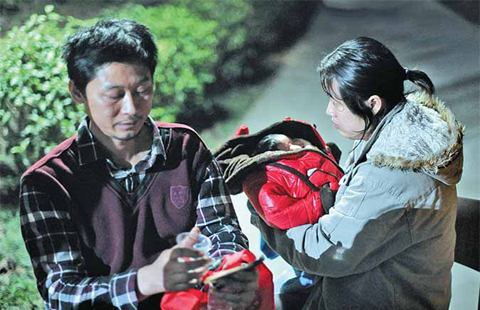Premier presses for more efficiency
Updated: 2014-03-28 19:28
By Zhao Yinan in Chifeng, Inner Mongolia (chinadaily.com.cn)
|
|||||||||||
Visiting an ethnic administrative center in the Inner Mongolia autonomous region on Friday, Premier Li Keqiang urged local officials to investigate the possibility of further cutting red tape to unshackle market innovation.
|
 Premier Li pays surprise visit to cramped village clinic
 Premier calls for financial innovation |
"Is there any possibility of further reducing the number of administrative approval procedures for businesses and the public? We should work on it and find it out," Li told local officials at an administrative service center in Ongniud Banner in southeastern Inner Mongolia.
Li Yongjun, director of the center, said the Ongniud Banner government has delegated 74 percent of all the administrative approval procedures to lower levels of government and has scrapped a number of them.
"The number of newly registered businesses has doubled compared with the same period last year since we initiated the reform," Li Yongjun said.
The registration of a livestock cooperative, for instance, involves several reviews and a field investigation to ensure proper sanitation and find out whether the proposed location is suitable for raising livestock.
"It can take several months, and the villager has to come back and forth to do the paperwork many times. Some just gave up because it was too complicated," Li Yongjun said.
"Twenty-eight new cooperatives have been set up since March after we streamlined the procedures. That was in stark contrast to last year, when only about 100 cooperatives were registered throughout the whole year," he said.
The administrative center, set up in 2005, is responsible for the review, coordination and supervision of the approval procedures in the Ongniud Banner.
"It is a one-stop center that integrates scattered work in different government departments into a single service station, so that people can complete tasks at one place," Li Yongjun said. "And there is less room for government departments to do any blame-shifting."
China's national government has pledged to streamline business procedures and accelerate progress by cutting bureaucratic inefficiency. The central government has delegated more than 221 items in the administrative approval process.
In his recent work report the premier pledged to further improve efficiency by reducing another 200 items this year.
Related Stories
In Li Keqiang's words 2014-03-06 08:18
Premier Li Keqiang's visits abroad 2014-01-24 15:59
Highlights: Premier Li Keqiang in Thailand 2013-10-14 15:07
Innovation should drive reform, says Premier Li Keqiang 2013-09-18 07:48
Li Keqiang: China will stay the course on sustainable growth 2013-09-09 19:45
Chinese Premier Li Keqiang 2013-07-18 09:20
Today's Top News
Xi urges inter-civilization exchange, mutual learning
First lady named UNESCO envoy
Civil service jobs in less demand
China to tighten cyberspace security
China, France sign business deals
Hunt focuses on China satellite pics
Jet search still 'remains priority'
11 dead in lingerie factory fire
Hot Topics
Lunar probe , China growth forecasts, Emission rules get tougher, China seen through 'colored lens', International board,
Editor's Picks

|

|

|

|

|

|





